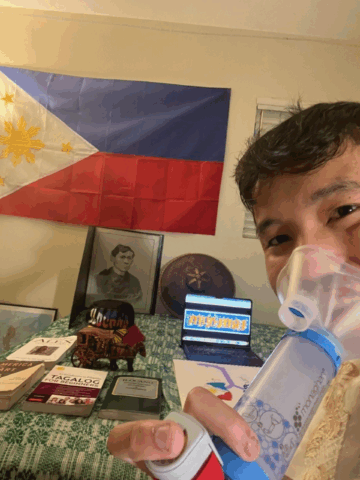Talking to children about the Ukrainian invasion
The Russian invasion of Ukraine and resulting humanitarian crisis is leaving many in the United States unsettled – adults and children alike.
Talking to children about big, scary topics can be intimidating for even the most seasoned of parents, but these tips from Dr. Sheila Modir, a pediatric psychologist at CHOC, can provide a roadmap for parents during this important conversation.
Talking to children of all ages about war
How parents discuss war with children may vary depending on their age, but there are five considerations that apply to children of all ages.
First, ask your child what they have heard about it. This is the time to address any misinformation that they may have picked up on at school or through social media.
Second, answer your children’s questions honestly, directly and simply, with age-appropriate information using real, concrete words. Sometimes this could mean just acknowledging that there is something happening between Russia and Ukraine. It is OK if you don’t have all the answers to their questions. You can say “I don’t know,” but you can find out the answer together.
Third, ask how your child is feeling and give them permission to feel however they do about the situation.
Fourth, limit media and social media exposure. Avoid the temptation to stay glued to your phone or television. Media and social media coverage is constant, but watching it over and over can compound the trauma. Be mindful of children’s exposure to media as well – even if they aren’t in the room, they may overhear news reports. Older children may have their own access to computers and social media. If watching TV or being on your phone helps with coping, try turning on a movie, watching a channel without news alerts, or playing a game.
Finally, parents in the United States are fortunate to be in a position to reinforce to children that they are safe and secure. You can ensure safety by continuing to adhere to your child’s daily routine. This will provide them with a sense of reassurance and safety during a scary and unknown time.
Talking to younger children about war
In this age group, parents should work to protect children against unnecessary information like adult conversations or disagreements and media coverage.
Reinforcing the idea of safety and security is especially important for this age group as young children tend to bring perceived danger close to home. So, parents in the United States can remind younger children that while war is serious, this is not happening in their neighborhood. Parents might consider showing kids on a map where they are and where the invasion is.
Be mindful that children of this age may work through their concerns through art and creative play. Though it might be jarring to witness, young children process their thoughts through play.
Talking to school-aged children about war
Studies show that people feel better when they are helping, so consider engaging school-aged children in relief efforts. Here is a list of ways to support.
Children are watching how their parents respond and emulate that. So, this is a good time for parents to emotionally model for children appropriate healthy responses while also being validating. We can tell children that it’s OK to be sad and show how we manage that.
Parents ought to listen for and be aware of cues from a child indicating they feel unsafe, worried experiencing irrational fears. For example, the child might ask whether WWIII is imminent.
Talking to adolescents and teens about war
Naturally, children at this age will have more nuanced and complex perspectives on war, including how it might relate to their own futures. As with any age, parents ought to reinforce safety and security. Parents ought to also approach conversation with an open mind: As teens spend time with peers and on social media, these interactions may influence their opinions, thoughts and questions. Parents should be respectful and listen to what their children say and have heard from their friends.
Sharing your own beliefs
It’s OK for parents to share their own beliefs about war with their children. You can also remind them that people have strong and different opinions about war, especially in a democracy. Beliefs may vary even among families. Parents should prepare themselves that older children and teens may have entirely different perspectives than they do.
Partners and parents ought to be mindful though of exercising intense disagreement in front of children. The tone and volume of these conversations may be frightening or unsettling to young children. Try to maintain a calm and direct tone when discussing disagreements.
Finally, resist the urge to label people as “good guys” or “bad guys” in your conversations. It may be confusing and frightening to hear this for young children.
Spotting those in need of special attention
It’s important for parents and educators to be mindful of children’s vulnerabilities during this time and consider extra needs that they might have. Children who have experienced depression, anxiety, previous trauma or loss may be especially unsettled by current events. Children in military families may be especially concerned. Finally, children of Ukrainian, Russian or eastern European descent may be especially concerned about their cultural homeland, any relatives who may live there, and of potential retaliation or ostracization at school. Extra time, attention and patience should be paid to these vulnerable groups.
Take action to build resilience
Now more than ever, resilience is crucial. This download offers strategies that parents can take to help children – and themselves – strengthen their resilience.
Children benefit from routine always. Having a daily schedule of eating healthy and regular snacks and meals, exercising and getting a full night’s rest is more important now than ever. Remember, engaging in a daily routine is not a means of ignoring what’s happening. Instead, this helps continue to provide children with structure, stability and predictability.
Focusing on practical matters can also help. Families can take time to review their family emergency plans and preparations. This will reinforce to children that they are safe and secure.
Giving back can also give children a sense of purpose and impact. Here is a list of ways to support Ukraine now.
Get more expert health advice delivered to your inbox monthly by subscribing to the KidsHealth newsletter here.
Get mental health resources from CHOC pediatric experts
The mental health team at CHOC curated the following resources on mental health topics common to kids and teens, such as depression, anxiety, suicide prevention and more.





